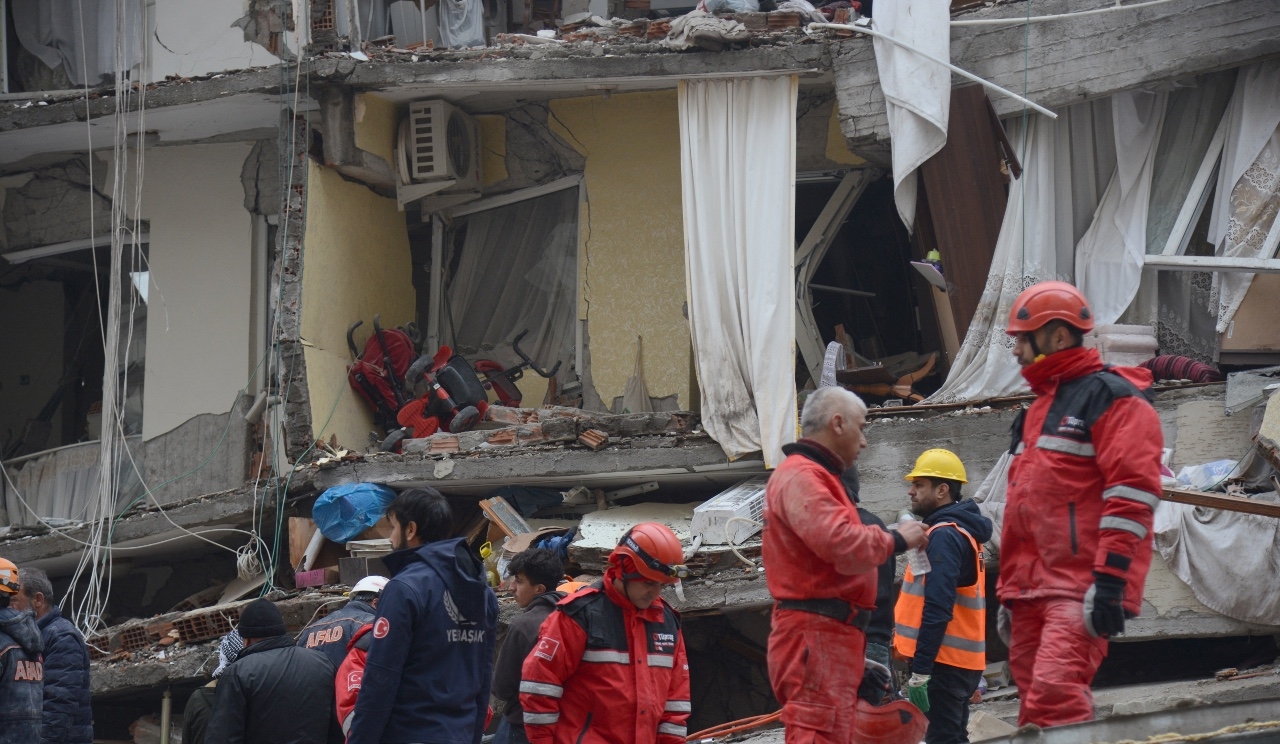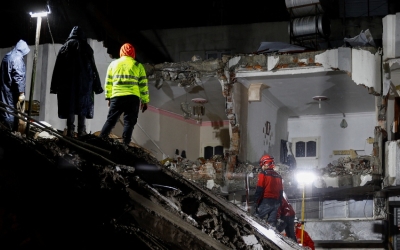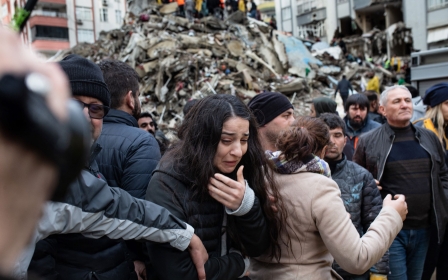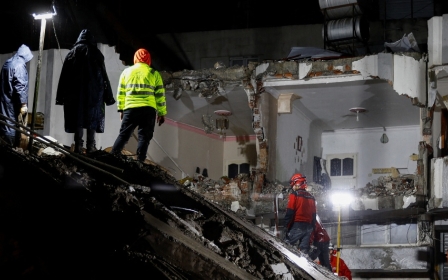Turkey earthquake: Turks in US rally to raise aid

Turkey’s diaspora in the US is mobilising to raise $3m in aid after a powerful earthquake wreaked widespread devastation across southern Turkey, leaving thousands dead and countless others trapped under rubble.
“We heard about the earthquake late last night and immediately started raising funds first thing in the morning,” Senay Ataselim, executive director of Turkish Philanthropy Funds, told Middle East Eye.
Turkish Philanthropy Funds is spearheading national efforts by Turkish diaspora groups to raise $3m in aid. Within 10 hours of launching, the campaign had already raised $3,410,000.
“The money is coming in fast,” Ataselim said.
Diaspora groups throughout the US are working with the Turkish Philanthropy Funds to gather contributions from their geographic areas.
“Everyone is mobilising their communities to get to that number as quickly as possible,” Gizem White, spokeswoman for the American Turkish Association of Washington DC, said.
Gizem says the association is asking the roughly 20,000 Turkish Americans in the DC area to contribute with social media posts. The organisation has set a $50,000 target.
“Every minute counts. There are so many people trapped under the rubble. On top of everything, it is winter,” White said. “The conditions are harsh and people can’t go back into their houses.”
The Boston University Turkish student association has started a GoFundMe fundraiser that aims to raise $5,000 for the ongoing search and rescue efforts in Turkey, Derya Binal, president of the association told MEE.
"The funds collected will be directly transferred to the Bridge to Turkiye Fund," Binal said, which is collectively raising $200,000 for the ongoing search and rescue efforts.
Professional associations across the US are also jumping into action.
'We are all volunteers'
The Turkish American Medical Association (Tumed) was founded mainly to assist Turkish-American students in the medical field and to provide healthcare to underprivileged members of the Turkish-American community, but has quickly shifted into an emergency drive to address the earthquake.
“We are mainly raising money to donate to Akut (a voluntary Turkish search and rescue organisation),” Engin Gurler Yerlioglu, Tumed spokesperson, told MEE.
Yerlioglu says the group's efforts have been charged with a sense of urgency after seeing images from back home. Her Whatsapp has been ringing all day with photos of collapsed buildings in places like Antakya and Gaziantep, two of the Turkish cities near the epicenter of the deadly quake.
'Turkish Americans are very connected. Right now we are all volunteers'
- Gizem White, American Turkish Association
“People we know all felt the earthquake of course and its aftershock,” she told MEE.
The worst quake to strike Turkey this century came before sunrise Monday and was followed in the early afternoon by another large 7.7 magnitude earthquake. Thousands of buildings have been destroyed. Turkish disaster management agency, Afad, said the death toll in Turkey reached 2,316, the number of wounded was 13,293 and 7,340 had been rescued alive from the rubble by the time of writing.
Thousands of search and rescue workers have been dispatched to southern Turkey, but their efforts are being hamstrung by rain, snow and near-zero temperatures.
About 350,000 Americans of Turkish descent live across the US. While the number is dwarfed by the nearly three million people with Turkish roots living in Germany, those in the US say they are well-organised and committed to helping their homeland.
“Turks are newcomers to the US, so we have a lot of immigrants and first generation,” Ataselim said. “Most Turks came here to study and ended up staying. They are well educated and connected to back home.”
“Turkish Americans are very connected. Right now, we are all volunteers,” White said.
Donations are also coming in from non-Turkish Americans, community leaders said. “When there is a disaster in the world, Americans respond,” Ataselim added.
Middle East Eye delivers independent and unrivalled coverage and analysis of the Middle East, North Africa and beyond. To learn more about republishing this content and the associated fees, please fill out this form. More about MEE can be found here.




